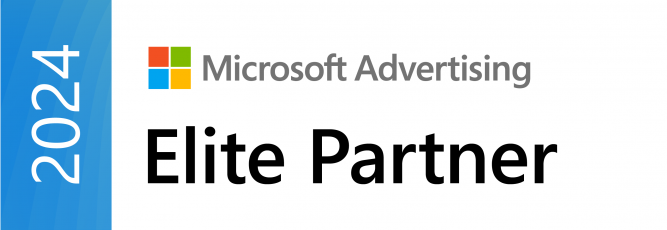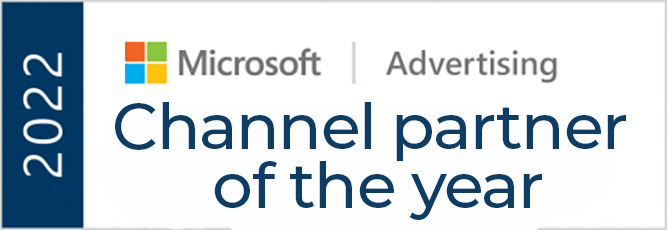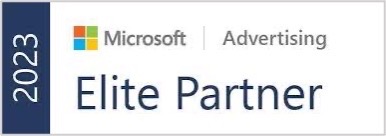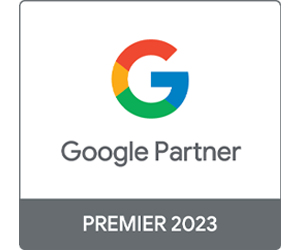
When it comes to the world of PPC advertising, there are two major search engine advertising platforms that businesses can take advantage of: Google Ads and Bing Ads (now called Microsoft Ads). Google Ads and Bing Ads each come with their own unique set of advantages and disadvantages, and it’s important to understand these before you invest your marketing budget in either platform.
When it comes to the world of PPC advertising, there are two major search engine advertising platforms that businesses can take advantage of: Google Ads and Bing Ads (now called Microsoft Ads). Google Ads and Bing Ads each come with their own unique set of advantages and disadvantages, and it’s important to understand these before you invest your marketing budget in either platform.
We’re here to help you gain a better understanding of these two paid advertising platforms, allowing you to make an informed decision on which form of advertising is best for you.
It’s important to understand exactly what these paid advertising platforms are and how these differences can impact your return on investment.
Google Ads is a paid advertising platform in which you can run paid advertising campaigns that work by targeting keywords that searchers use in Google. Using this information, you can create an advert that will appear in Search Engine Results Pages, or ‘SERPs’, based on those keywords. Since you have paid for this advert, it often appears above the organic results, giving your business a higher chance of being seen by new and existing customers.
Bing Ads operate on three search engines: Bing, Yahoo and AOL. Therefore, your ad is potentially seen on all three. Bing Ads work in a similar way to Google Ads, whereby ads often appear at the top of the results page above the organic content.
Before we discuss the various benefits and drawbacks of each marketing platform, let’s compare the basic aspects of Google Ads and Bing Ads.
Keywords – Google and Bing each have their own keyword research tool. Each suggests relevant keywords for your enquiry and these you can use either as keywords to target using relevant ad copy, or you can add them as negative match keywords meaning you actively exclude those searches from seeing your ads.
Headline text – Both platforms now provide 3 parts to the headline text, each 30 characters long.
Description text – Both platforms offer 2 description lines in their ads, each 90 characters long.
Display URL – Both platforms display their URLs underneath the headline. However, Bing highlights its display URLs with bold formatting which can help improve click-through-rate.
Final URL – Each platform allows advertisers to select specific landing pages for each advertisement meaning campaign can be extremely targeted. This also means that in order to achieve greater relevancy and ultimately better results, you may need to spend more time creating relevant content on your website.
Below are the main benefits you can expect from utilising Google Ads in your marketing strategy:
Below, we’ve outlined some of the main drawbacks of Google Ads:
Discover the below list to learn more about the benefits of Bing Ads:
Learn more about the disadvantages that Bing Ads can have:
With the above in mind, you may be wondering what the main differences are when it comes to Google Ads vs Bing Ads. Some of the main differences come from the different rules and regulations that are in place for each platform.
For example, Google Ads tends to have slightly stricter policies including restrictions or bans on ads including alcohol, adult content, gambling, healthcare, political content and more. Bing also comes with its own restrictions, including advertisements about dating.
Here are some of the more notable differences between Google Ads vs Bing Ads:
It was once believed that Google Ads was the only viable platform for paid advertising through search engines. However, there has been an uptake in interest and performance for Bing Ads, making it a beneficial platform to allocate your budget to.
For example, for desktop users, Bing now has 13.5% market share worldwide and 13.9 billion monthly searches.
Essentially, we recommend that you utilise a relationship between both Google Ads and Bing Ads to get the ultimate outcomes for your business. This is because they complement each other – the audiences you cannot reach on Google you can reach on Bing and vice versa. This opens new doors for higher reach and conversions for your business.
If you’re looking to achieve more visibility and traffic whilst appealing to a smaller, more niche audience, then a combination of both Google and Bing advertising is essential for your business.
For more information on how you can take advantage of paid advertising for your business, get in touch with the Diginius team today. With our years of industry insight and expert knowledge of PPC, we can help you to navigate the complex paid advertising market to bring in great results for your business.







© 2024 Diginius Ltd. All rights reserved.

Chester Yang is the Microsoft Program Manager at Diginius with a background in economics and quantitative research.
At Diginius, Chester focuses on nurturing partnerships with PPC agencies and integrating marketing and sales solutions.